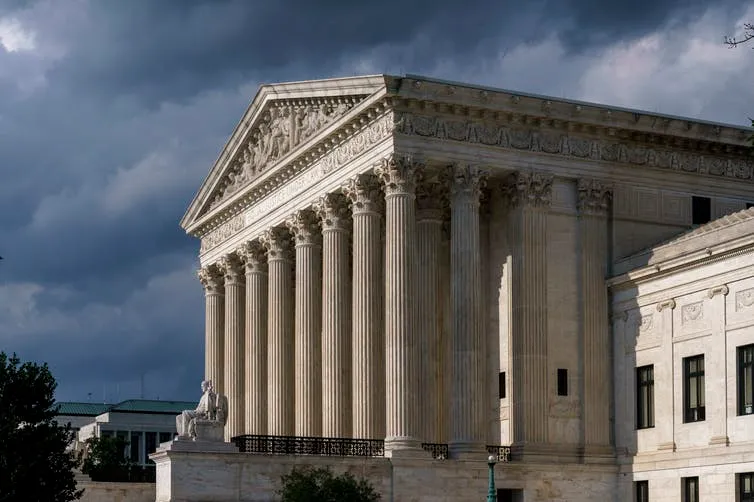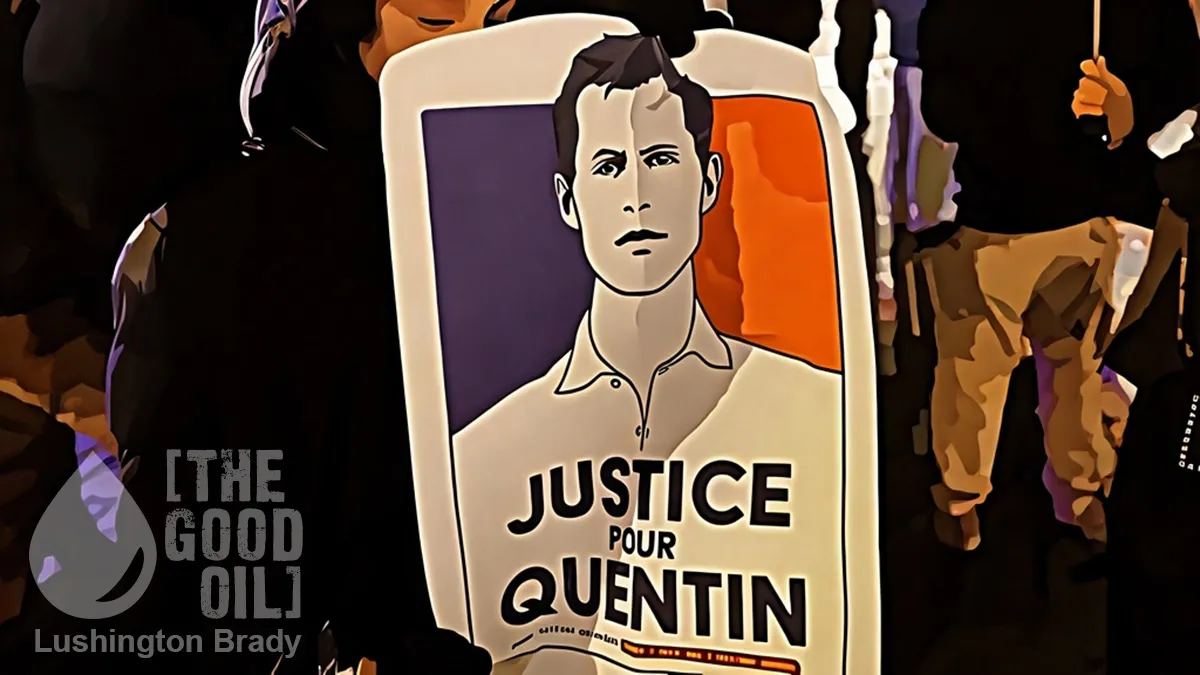Table of Contents
The Supreme Court this week placed itself in the crosshairs of the Biden administration with a series of rulings that have each affronted the sensibilities of those on the political left. From ending Affirmative Action to striking down President Joe Biden’s student loan relief program, the justices – specifically those regarded as more conservative – have drawn ire. No decision more so than that of 303 Creative LLC v. Elenis. The case revolves around whether business owners can be forced to accept jobs that violate their principles. The 6-3 decision ruled that the First Amendment right to free speech protects individuals from coerced creation.
What makes this a significant ruling in the ongoing free speech battle? And more importantly, are there ramifications coming down the pipeline? We spoke with Liberty Nation’s Legal Affairs Editor Scott D. Cosenza, Esq. to figure out what the ruling means for free expression in America.
Mark Angelides: Scott, can you give us the details of the case, and tell us why this was different from the notorious 2018 Masterpiece Cakeshop case?
Scott D. Cosenza: Lori Smith wants to advertise her wedding website design business and let people know she will not create sites for same-sex unions. She says her faith requires her not to celebrate such marriages, and making her create sites for these couples violates her right to freedom of religion and freedom from compelled speech.
The Supreme Court ruled on a side issue in the Masterpiece Cakeshop case, never directly addressing the constitutional claims presented. They managed one of them with this case: The First Amendment’s free speech protections include the right to be free from compelled speech.
MA: So, what was the majority decision here?
SDC: The Court ruled that Colorado could not forbid Ms. Smith’s advertisements nor force her to design websites celebrating same-sex marriages. It said Ms. Smith (303 Creative) did have free speech rights, even though her speech was commercial. It also found that she reasonably feared retribution from Colorado if she published the advertisements she contemplated.
MA: Something that struck me, Scott, when the ruling in 303 Creative dropped, was that the vast majority of legacy media outlets were calling this a blow to LGBTQ rights. For example, Politico ran the headline “Supreme Court limits LGBTQ protections in dispute over services for same-sex weddings”. CNN ran with: “Supreme Court releases major opinion on LGBTQ rights case”. And the New York Times had it as a “Blow to LGBTQ Protections”. I think you can see where I’m heading here.
Why is this being painted as an LGBTQ case when it’s clear – at least to me – that this is a free speech, First Amendment case?
SDC: This is a free speech case and an important one too. While opposing free speech is de rigueur for progressives, and their press organs, doing so in direct terms seems frowned upon. Invoking favored boogeymen, however, to attack free speech while wearing the hero’s cape of defender of the LGBTQQIA++ seems like a more successful path for them. All Americans’ free speech rights were strengthened with this decision; it protects our most vulnerable minority, the individual.
MA: Justice Gorsuch wrote: “Under Colorado’s logic, the government may compel anyone who speaks for pay on a given topic to accept all commissions on that same topic – no matter the underlying message – if the topic somehow implicates a customer’s statutorily protected trait.” That sounds a little hyperbolic on first reading, but is it?
SDC: No. Colorado argued to the Court that if you offered a service to one person, you had to provide it to everyone. A wild example that could occur under the law – a black drag performer could be forced to perform at a Ku Klux Klan rally, for instance. Justice Sotomayor agrees with this assessment and said in her dissent that the solution would be not to offer services to the public. She said that was why Steven Spielberg got to pick and choose who he made films for.
MA: There is already a vast amount of media and political class fallout from this free speech ruling, some of it prompted by Justice Sotomayor’s words of dissent. She wrote: “A website designer could equally refuse to create a wedding website for an interracial couple, for example.” And it seems the chattering classes have decided that this is the narrative to back. Does she have a point? Is such a thing possible?
SDC: No, because the customer’s identity – their race or sexual orientation doesn’t come into play. It’s the product. She may refuse any commission from any party to create work that compels her to speak unwanted messages. She may not refuse commissions because of the identity of those who wish to engage her. For instance, Ms. Smith and 303 Creative could not refuse a commission because a gay couple gave it as a present for a friend’s heterosexual marriage. She would have to work with the same-sex couple to complete the website.
MA: A final question for you, Scott. Joe Biden has gone as close to the edge as he can in saying this particular Supreme Court is beyond the pale; “not normal” is the term he used. Do you think we are about to witness a push to either remove justices or dilute the influence of the Court?
SDC: “I want to tell you, Gorsuch. I want to tell you, Kavanaugh. You have released the whirlwind, and you will pay the price! You won’t know what hit you if you go forward with these awful decisions!”
Those are the words of Chuck Schumer (D-NY), Senate Majority Leader, shouted from the steps of the Supreme Court while he shook his fist. Democrats at the top of the party have been working to de-legitimize the Supreme Court for years. Given their disappointment with the Court’s recent rulings, I expect their efforts will continue apace if not with renewed vigor.









